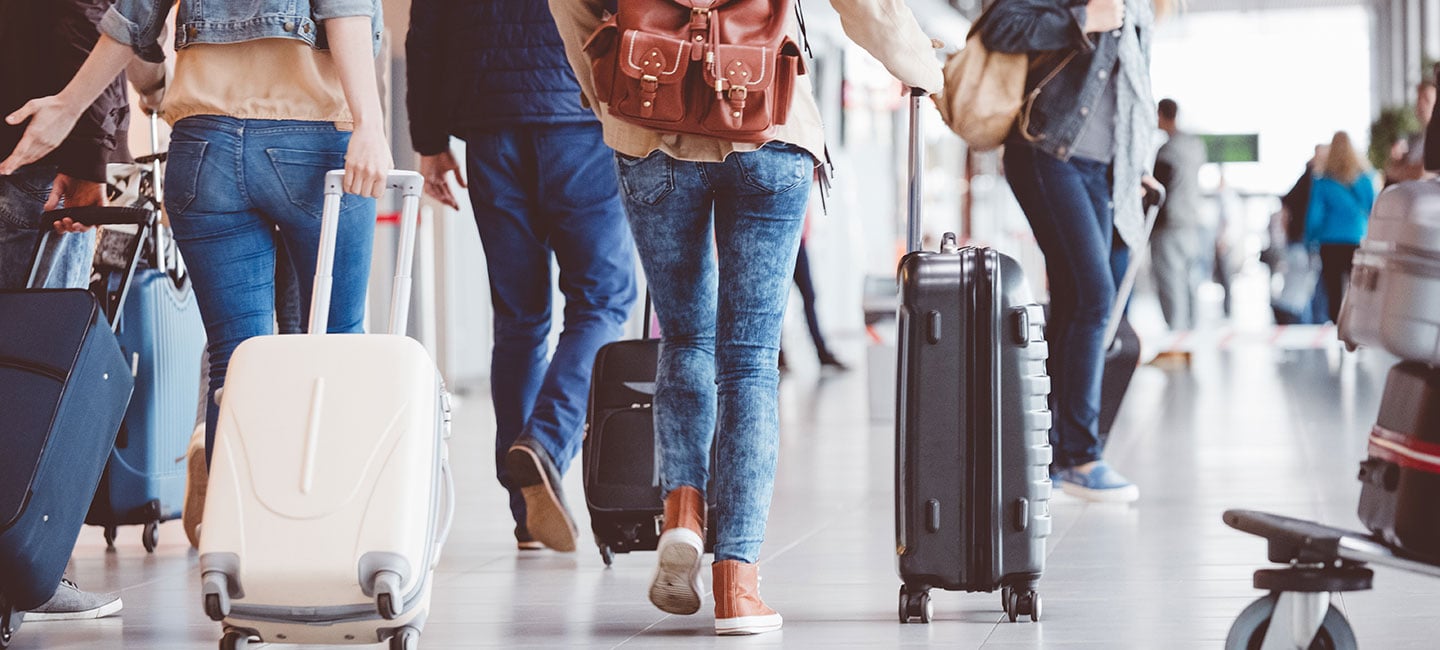Masks, Boosters and Travel: What’s New with COVID-19?
If you’re planning on traveling, there’s one item you may not have to pack in your suitcase anymore: a mask.

Dr. John Greene, Chair, Infectious Diseases Program
The Transportation Security Administration will no longer enforce the COVID-19 mask mandate on planes and other public transportation. A federal judge ruled this week that the Centers for Disease Control and Prevention had overstepped its authority with the mandate.
The CDC still recommends individuals wear masks while traveling, and the White House has announced it will likely appeal the ruling.
Dr. John Greene, chair of the Infectious Diseases Program at Moffitt Cancer Center, says those who want extra protection should still continue to wear a mask. But what about cancer patients?

Dr. Bob Keenan, Vice President of Quality and Chief Medical Officer
“Patients at the highest risk — the most immunosuppressed like blood cancer patients and those on active chemotherapy or immunotherapy — should continue to wear masks on public transportation and in public places,” said Greene.
And while you may also see relaxed mask mandates at local businesses, that’s not the case at Moffitt.
“The CDC continues to recommend the use of masks for patients, visitors and staff in health care settings,” said Vice President of Quality and Chief Medical Officer Dr. Bob Keenan. “While a few health care systems have relaxed their mask mandates, almost all continue to require the use of masks in clinical areas. Given the vulnerable nature of our patient population, it seems prudent to continue Moffitt’s current mask protocols.”
Moffitt will also continue to follow the CDC’s recommendation for symptom screening for all individuals entering health care facilities.
Boosting Protection
Currently, the CDC recommends certain immunocompromised individuals and people over the age of 50 who received an initial booster at least four months ago be eligible for a second mRNA booster to increase their protection against severe disease from COVID-19.
Data from the CDC show during the recent omicron surge, those who were boosted were 21 times less likely to die from COVID-19 compared to those who are unvaccinated and seven times less likely to be hospitalized.
Moderna announced this week that it has modified its booster shot to target two strains of the virus, calling it a bivalent vaccine.
“The booster will cover two variants like the quadrivalent flu shot covers four strains,” said Greene. “But as we saw this year, the emerging strain cannot always be perfectly predicted.”
Moderna says the modified shot appears to offer stronger protection against the virus than its original booster, which was created to target the first form of the virus identified in 2019.
The bivalent vaccine is still being tested but could be available to the public this fall.



